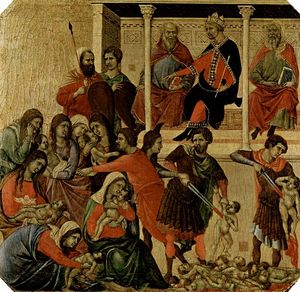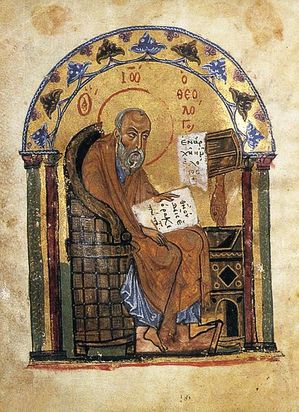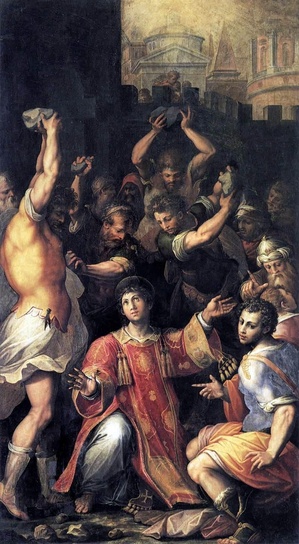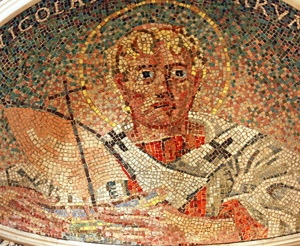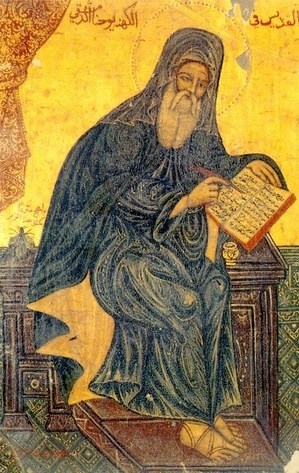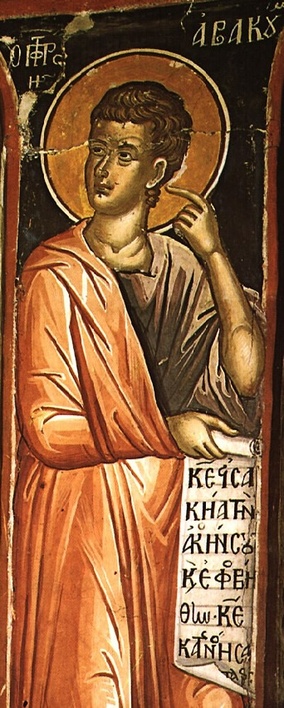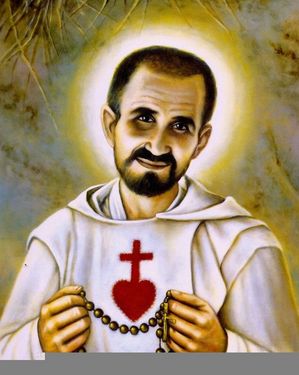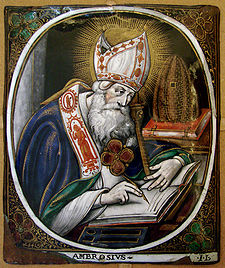
O God, who made the Bishop Saint Ambrose a teacher of the Catholic faith and a model of apostolic courage, raise up in your Church men after your own heart to govern her with courage and wisdom.
The prayers for todays Mass that honors the ecclesial memory of one of the famous saints are key to pinpointing what the Church most revers about the man who was concerned about right-thinking and right-praying Christians. Who was Ambrose? The Collects tells us that he was a bishop, saint teacher, model of courage seen in the apostles and capable of good governance, that is, he had courage and wisdom. What moved Ambrose? Again, the collects tell us he was constantly inspired by the light of faith.
The Church recalls
Saint Ambrose of Milan (340?-397), bishop and Doctor of the Church. Ambrose was
born in Trier to a Roman family: his father was praetorian prefect of Gaul and
educated in Rome In about 372 he began his public service as prefect of Liguria
and Emilia, whose capital was Milan.
Let's recall that the ecclesial tradition indicates that the gospel was brought to Milan by Saint Barnabas and that the city's first bishop was Saint Anathalon. In 374 the bishopric of Milan became
vacant. An astute Ambrose tried to work with the conflict between orthodox
Catholics and Arians over the appointment of a new bishop. His words were
convincing and hopeful that the people demanded --not the pope-- that he become the bishop of
Milan.
Ambrose's personal holiness was such that he gave his material belongs to the
poor and to the Church. We attentive to the prayerful reading of the Scriptures and praying the Liturgy. He was a very attentive bishop as the Good
Shepherd. Works of charity and clear teaching was attractive to many. As bishop
he defended the rights of the Church and tried to correct the errors of the
Arian heresy with learning, firmness and gentleness.
The Divine Office that we
pray today is still peppered with Ambrose's hymns.
Saints beget saints. Ambrose
was central to the conversion of St Augustine to Catholicism.
Pope Benedict gave his own catechesis on this great saint today. Ambrose is the "Icon of Christ."
